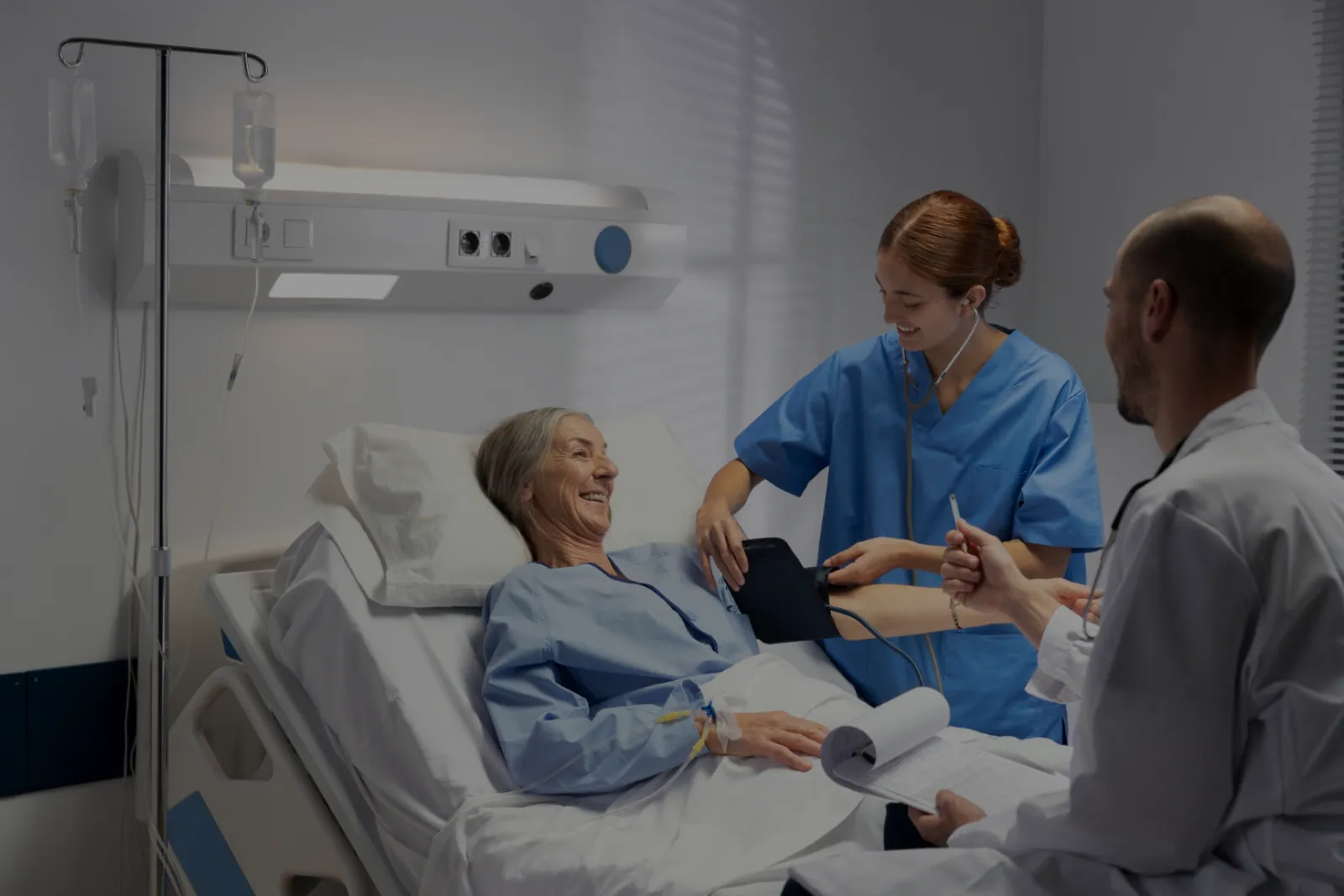Nuffield Central Hospital
Nuffield Central Hospital is a reliable health care center for treating millions of people in Vienna,offering their services for almost all medical center’s. We helped in the renewal of the hospital’s Support Service Centre’s operations and simplified the process efficiently and helped them focus on their core activities.
REQUIREMENTS
The Nuffield Support Center engages approximately 1200 professionals and offers support services for the hospital zones and its partners in both patient work and corporate governance. The entity operates throughout the organization in six areas, including support services for hospital and equipment care, staff and patients, premises, financials and accounting, ICT and research. The support functions have a critical impact on overall how the hospital will perform. As its operational environment is expeditiously changing, the requirement for a process revival was acute. For example, new service providers need to be efficiently introduced to their work and addressing the pandemic requires quick changes in operating models. Our extensive experience in people-centric service design made us the right partner to favor the renewal.


Our strong understanding of human needs help restructure complex issues, capture untouched opportunities and design people-focused solutions. We place the customer at the core of a multidisciplinary, agile design approach. Strategic positioning, design practices and technology all focus on the customer journey. We use human-centred design techniques over the complete product service experience through repetitive, progressive activations. Customer-driven design often leads to enterprise transformation at speed and scale, establishing the foundation for continuous innovation.
RESOURCES
To recognize challenges and new possibilities, we formed the current state of ten selected service processes, addressing a broad spectrum of operations, from equipment maintenance (CSSD) and ward services for patients to HR services and employees’ continuous learning.
The modeling advanced in co-working sprints, with each system separately modeled and clearly envisioned into a blueprint and knowledge acquired carried over to the next sprint. The Nuffield employees who participated in modeling the operations were asked to think in advance about who the customer is and who are engaged in the service process. In most processes, the client is a healthcare professional using the service.
We started by determining the goals and strengths of each service process as well as identifying conjectures about the causes of any problems. Subsequently, we identified the roles and people engaged in the selected areas of work, along with their practical needs and goals, after which we focused on the customers by explaining their tasks along the journeys as successively as possible. Then we defined the other roles related to the customers’ journeys and traced links between their actions. We validated the service process draft by enhancing our understanding of the customer perspective. Thereafter we finalized and reconsidered the service blueprint and discovered various multifarious measurement methods for the processes, including efficiency and work satisfaction.
Equipment maintenance (Central Sterile Supply Department) was selected as the first process to undergo renewal, with five recognized development and testing areas. A two-month piloting phase guaranteed that we made the best decisions. In due course, we examined the results and upgraded the best ones into the service process blueprint. All of this was successfully done remotely, using robust tools like Miro Whiteboard.
RESULTS
The agile process modeling provided defined results and impact in healthcare institutes. It helps Nuffield create slick, secure, prompt and accurate support functions that meet the current and future needs of customers’ and employees’. All this is achieved through innovative ways of operating, enhanced communications, ownership of work and easier sharing of responsibilities.
The workshops created the foundation for improved communication between people in different roles. The improved clarity into each other’s tasks amplifies point of view, helps in interaction, increases empathy and shares responsibility. When everyone recognizes the importance of their role as part of a greater whole, everybody benefits with increased relevance, encouragement and commitment for their work, too. The new ways of doing things and ownership of the work inspire and encourage people, paving the way for the most humane approach to achieving economic viability and saving vitals in healthcare.
The progress of service processes supported Nuffield discovering new areas for development and having a noticeable impact.
Highlights
Encouraging customer-centric idea: more content customers/patients.
Contemporary process descriptions: situational awareness and the right beginning for further development.
Smoother communication and more empathy, easier categorization of responsibilities, accelerated work motivation and commitment:Provide meaningful work with a positive work environment.

Our association with Pegasus InfoCorp has given us a great outset for customer-driven and visual service development, which has now become our new routine. This is a significant change in the traditional healthcare sector and has a clear impact on determining the development areas that were previously overlooked and to make a tangible impact on them.
Client testimonial

